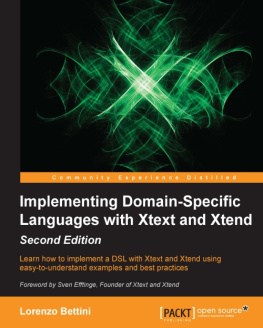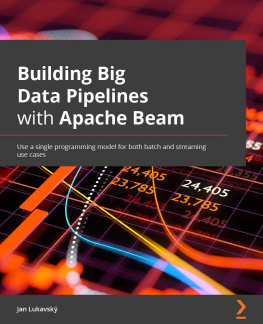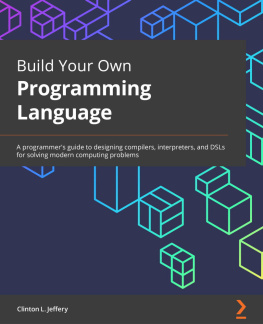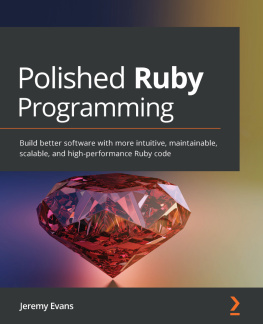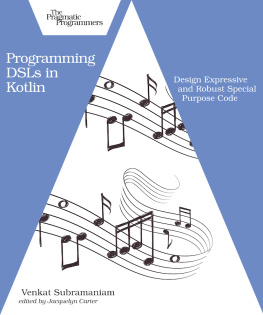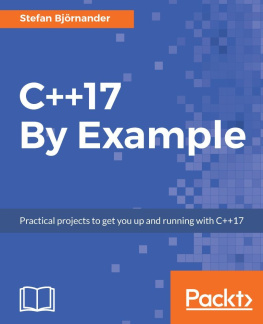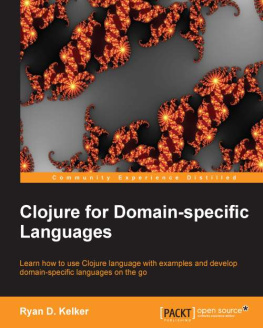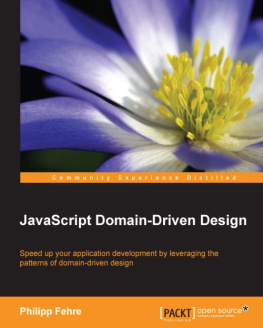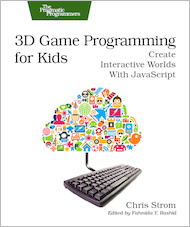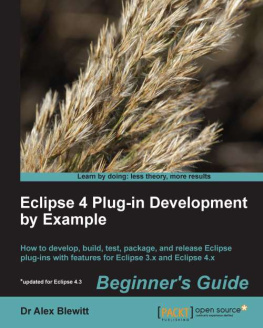Lorenzo Bettini - Implementing Domain Specific Languages with Xtext and Xtend
Here you can read online Lorenzo Bettini - Implementing Domain Specific Languages with Xtext and Xtend full text of the book (entire story) in english for free. Download pdf and epub, get meaning, cover and reviews about this ebook. year: 2016, publisher: Packt Publishing, genre: Home and family. Description of the work, (preface) as well as reviews are available. Best literature library LitArk.com created for fans of good reading and offers a wide selection of genres:
Romance novel
Science fiction
Adventure
Detective
Science
History
Home and family
Prose
Art
Politics
Computer
Non-fiction
Religion
Business
Children
Humor
Choose a favorite category and find really read worthwhile books. Enjoy immersion in the world of imagination, feel the emotions of the characters or learn something new for yourself, make an fascinating discovery.
- Book:Implementing Domain Specific Languages with Xtext and Xtend
- Author:
- Publisher:Packt Publishing
- Genre:
- Year:2016
- Rating:3 / 5
- Favourites:Add to favourites
- Your mark:
Implementing Domain Specific Languages with Xtext and Xtend: summary, description and annotation
We offer to read an annotation, description, summary or preface (depends on what the author of the book "Implementing Domain Specific Languages with Xtext and Xtend" wrote himself). If you haven't found the necessary information about the book — write in the comments, we will try to find it.
Learn how to implement a DSL with Xtext and Xtend using easy-to-understand examples and best practices
About This Book- Leverage the latest features of Xtext and Xtend to develop a domain-specific language.
- Integrate Xtext with popular third party IDEs and get the best out of both worlds.
- Discover how to test a DSL implementation and how to customize runtime and IDE aspects of the DSL
This book is targeted at programmers and developers who want to create a domain-specific language with Xtext. They should have a basic familiarity with Eclipse and its functionality. Previous experience with compiler implementation can be helpful but is not necessary since this book will explain all the development stages of a DSL.
What You Will Learn- Write Xtext grammar for a DSL;
- Use Xtend as an alternative to Java to write cleaner, easier-to-read, and more maintainable code;
- Build your Xtext DSLs easily with Maven/Tycho and Gradle;
- Write a code generator and an interpreter for a DSL;
- Explore the Xtext scoping mechanism for symbol resolution;
- Test most aspects of the DSL implementation with JUnit;
- Understand best practices in DSL implementations with Xtext and Xtend;
- Develop your Xtext DSLs using Continuous Integration mechanisms;
- Use an Xtext editor in a web application
Xtext is an open source Eclipse framework for implementing domain-specific languages together with IDE functionalities. It lets you implement languages really quickly; most of all, it covers all aspects of a complete language infrastructure, including the parser, code generator, interpreter, and more.
This book will enable you to implement Domain Specific Languages (DSL) efficiently, together with their IDE tooling, with Xtext and Xtend. Opening with brief coverage of Xtext features involved in DSL implementation, including integration in an IDE, the book will then introduce you to Xtend as this language will be used in all the examples throughout the book. You will then explore the typical programming development workflow with Xtext when we modify the grammar of the DSL.
Further, the Xtend programming language (a fully-featured Java-like language tightly integrated with Java) will be introduced. We then explain the main concepts of Xtext, such as validation, code generation, and customizations of runtime and UI aspects. You will have learned how to test a DSL implemented in Xtext with JUnit and will progress to advanced concepts such as type checking and scoping. You will then integrate the typical Continuous Integration systems built in to Xtext DSLs and familiarize yourself with Xbase. By the end of the book, you will manually maintain the EMF model for an Xtext DSL and will see how an Xtext DSL can also be used in IntelliJ.
Style and approachA step-by step-tutorial with illustrative examples that will let you master using Xtext and implementing DSLs with its custom language, Xtend.
Lorenzo Bettini: author's other books
Who wrote Implementing Domain Specific Languages with Xtext and Xtend? Find out the surname, the name of the author of the book and a list of all author's works by series.

